Outside, motorcycle horns screamed and taxis dodged pedestrians streaming through the narrow streets of Thamel, the backpacker district of Kathmandu. The ever-present dull gray smog was matched at street level by crumbling concrete buildings with black mold dripping down their faces. I stepped over a pile of mud and paving stones discarded during the city’s ubiquitous construction and wriggled my nose as the scent of rotting garbage wafted up from the street. Around the next corner was the doorway I sought, where a small, unremarkable sign announced: Garden of Dreams.
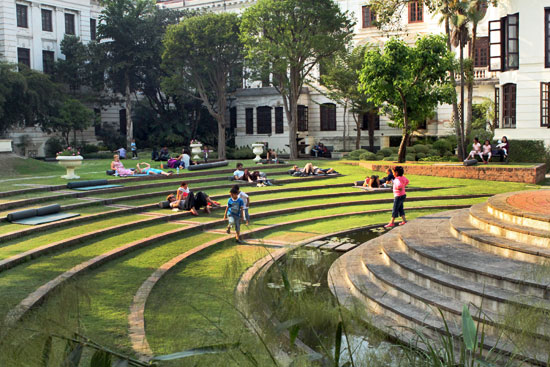
Inside, no hint of the exterior cacophony pierced the thick garden walls. People lounged on lush spring grass carpeting the steps of the semi-circular Greek-style amphitheater and spoke in hushed tones. The ordered garden, hidden courtyards, and burbling fountains in this oasis of peace and tranquility provided the perfect opportunity to wind down and escape the constant craziness of Kathmandu.
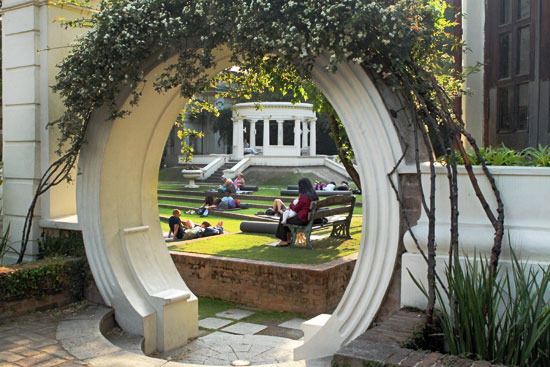
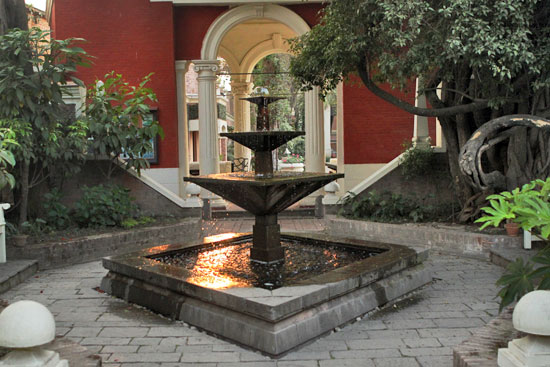
This neo-classical historic garden was originally installed during the 1920’s by the late Field Marshal Kaiser Shumsher Rana (1892-1964). Originally dubbed the Garden of Six Seasons, it was considered to be one of the most sophisticated private gardens of the time. Its use of European inspired elements such as decorative outdoor furniture, verandas, pergolas, balustrades and birdhouses was extremely progressive for the times but most impressive were its six pavilions, representing the six seasons of Nepal, which provided an architectural framework for formal arrangement of flowers, shrubs and trees.
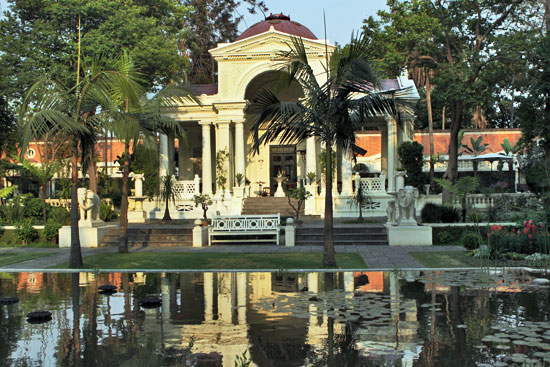
Today, only half of the original garden remains. After Shumsher’s death, the property was handed over to the Government of Nepal, which allowed the buildings to crumble away and the plantings to fall into an overgrown tangle until a generous Austrian Government provided funds for its restoration. Beginning in 2000, seven years of extensive work revived the gardens to their original glory and added modern facilities including a restaurant, bar and tea salon.
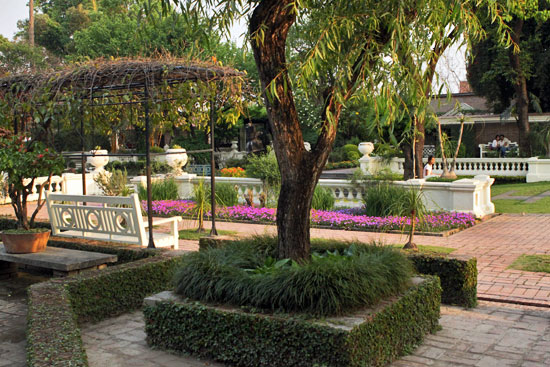
The current amphitheater, three pavilions and pergolas are now a venue for private and corporate functions, receptions, cultural programs and classical concerts, however when not in use for events the grounds are open to the public. Entry into Garden of Dreams is Rs. 80 per person for Nepali and Rs. 160 (less than $2 US) per person for Non-Nepali. Little enough to pay for something as important as my sanity.

I actually Think that article, “Garden of Dreams,
Kathmandu, Nepal | Hole In The Donut Cultural Travel” ended up being great!
I personallycannot see eye to eye with u more!
Finally appears like Istumbled upon a web site really worth browsing.
I appreciate it, Kassie
In the fall 0f 2009 I was volunteering in Nepal, teaching English to Buddhist Monks. I stayed in a guesthouse in Thamel, Kathmandu not far from the Garden of Dreams. The Garden was my daily escape from the insanity of the busy surroundings. After a day of teaching I would take a book into the Garden and read or just exhale until nearly dark. All the noise and busyness around simply disappeared, for a short while. Several times I ate at the restaurant or had tea on the weekends. Thank out for the memorable photos!
You’re very welcome, Bonita! Kathmandu really gets to me after a few days, and the Garden of Dreams is where I also go to regain my sanity.
I’m glad to hear that at least part of this garden remains and that it has been restored. It must feel like an oasis behind a secret door.
Such a nice and wonder place to visit. Beautiful garden..
You should have seen this place in 1995. It was totally abandoned and overgrown with ganja! Very ethereal, no entrance fee, no sign. It was just hiding behind that wall. On a misty morning you really felt like you had stepped back in time. I’m glad to see it was tastefully redone even if the secret is out.
Wow KC! Would have loved to have seen it back then, if only to see the contrast.
Garden of Dreams is indeed a beautiful place.
That looks very peaceful 🙂
Looks really pretty, and definitely relaxing!